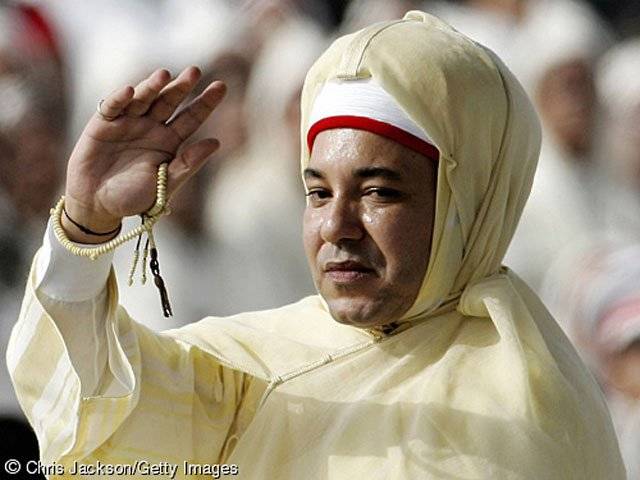Muammar Gaddafis fall is the latest in a trend that began with the uprisings in Tunisia last winter that sent Zine el-Abidine Ben Ali skulking into exile and toppled Egypts Hosni Mubarak the following month. Movements toward reform saved other despots: King Mohammed VI of Morocco instituted constitutional reforms, while Sudans Omar al-Bashir promised not to seek the presidency in 2015. Against the backdrop of these successes, however, the Arab Spring has had bloody setbacks. Protests in Bahrain and Jordan were violently suppressed. In Syria, Bashar al-Assads regime has killed thousands of the brave citizens who have turned out to protest since March. Beyond that region, dictators who continue to oppress include the Castro dynasty in Cuba; the Lukashenko regime in Belarus; Zimbabwes independence-leader-turned-tyrant, Robert Mugabe; and the isolationist and paranoid regimes in Burma and North Korea. Simply put, international law has failed to keep up with the challenges posed by dictatorial regimes. The 20th century was, to an uncomfortable degree, defined by the depredations and mass slaughters perpetrated by dictators. And thus far there are few indications in the 21st century that historys lessons have been absorbed. More often than not, international institutions stand by while political rights are eviscerated and mass killings are committed by regimes desperate to retain power. Many applauded the 2009 indictment by the International Criminal Court (ICC) of Sudans Bashir, the first of a sitting head of state, yet he remains president and no country through which he has traveled has tried to arrest him. Libyas Gaddafi has been indicted for crimes against humanity, but there seems to be little prospect of his answering the charges. What we think of as international law is a patchwork of conventions that deal with issues raised by dictatorships in a piecemeal, ineffective fashion. The Convention Against Torture, for instance, addresses politically motivated degrading treatment and torture, while the Genocide Convention targets the worst abuses a dictator could commit. The International Covenant on Civil and Political Rights delineates a base line of rights that must be protected but offers no clear mechanism by which to vindicate violations. The definition of crimes against humanity, as noted in the ICCs Rome Statute, could be used to reach many of the abuses a dictator could commit, but the ICCs efficacy is limited by jurisdictional requirements and the principle of complementarity. This patchwork leaves outside the purview of international institutions many political crimes a dictator would be likely to commit, while punishing certain heinous acts only once they have crossed an acceptably unacceptable threshold. What the international community needs is a framework that makes clear such forms of governance are violating international law. The clearest way forward would be through a convention targeting dictatorship as an international crime. Rather than treating dictatorship as an ancillary issue in the prosecution of other crimes, this would focus attention on the types of atrocities and oppression in which dictators engage. These crimes include the curtailment of certain civil liberties such as the freedoms of association, speech and press state interference with institutions such as the judiciary and electoral bodies, and oppressive regulation of personal autonomy. Moreover, nations could incorporate this criminalization into domestic law, providing an additional forum in which to publicize violations and prosecute violators. This step would not represent a dramatic or elitist Western intervention in the internal politics of foreign nations. The rights already guaranteed by international law, under such conventions as the International Covenant on Civil and Political Rights, serve as the framework of liberal democracy. A prohibition on dictatorship would simply provide a way to vindicate these rights in international or domestic forums. The Arab Spring and the march away from dictatorship over the past half-century undercut any claim that the rough outlines of democracy are somehow the province of the West. The final form may differ from the Middle East to Africa, just as democracy does not look the same in Washington, Paris and New Delhi. Yet that does not undermine the assertion that the fundamental core of democracy, the protection of political and civil rights by government, is something for which all people yearn. Eradicating dictatorship would make the world safer for all. It would lift the yoke from the necks of millions still labouring under authoritarian and dictatorial rule. And it would be the clearest vindication of the rights enumerated in the UN Charter in 1945. To paraphrase Gaddafis borrowed line, it is time to relegate regimes such as his to the dustbin of history. Mark Palmer, ambassador to Hungary from 1986 to 1990, is the author of Breaking the Real Axis of Evil: How to Oust the Worlds Last Dictators by 2025. Patrick Glen, a lawyer in Washington, is an adjunct professor at Georgetown University Law Centre. Washington Post
Saturday, April 20, 2024
An international plan to eradicate dictatorship

8:27 AM | April 19, 2024
8:09 AM | April 19, 2024
Pak economy improving, funds will be provided on request: IMF
9:57 PM | April 19, 2024
Minister advocates for IT growth with public-private collaboration
9:57 PM | April 19, 2024
Judges' letter: IHC seeks suggestions from all judges
9:55 PM | April 19, 2024
Formula 1 returns to China for Round 5
9:05 PM | April 19, 2024
Germany head coach Julian Nagelsmann extends contract till 2026 World Cup
9:00 PM | April 19, 2024
A Tense Neighbourhood
April 19, 2024
Dubai Underwater
April 19, 2024
X Debate Continues
April 19, 2024
Hepatitis Challenge
April 18, 2024
IMF Predictions
April 18, 2024
Kite tragedy
April 19, 2024
Discipline dilemma
April 19, 2024
Urgent plea
April 19, 2024
Justice denied
April 18, 2024
AI dilemmas unveiled
April 18, 2024
ePaper - Nawaiwaqt
Advertisement
Nawaiwaqt Group | Copyright © 2024





